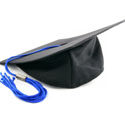Research News
-
Preventing sports injuries
U-M has become a leader in helping top athletes and weekend warriors avoid injuries.
-
U-M discovery about biological clocks overturns long-held theory
U-M researchers have found that the current theory of an internal mechanism controlling our sleep is, “frankly, wrong.”
-
Shifts in consumer spending and saving will usher in a new economic era
“In the coming years, U.S. consumers will save more and spend less,” said U-M economist Richard Curtin. “The recovery will be slow and uneven, and it could take a decade or more for consumers to restore their sense of financial security to pre-recession levels.”
Related: Older Americans: How they are faring in the recession?
-
Older Americans: How they are faring in the recession
Older Americans have weathered the financial crisis relatively well, although many now expect to work longer than they did just a year ago, according to a University of Michigan study.
-
Michigan's URC rises in rankings: R&D, high tech climbs
U-M, Michigan State, and Wayne State Universities continue to climb in the rankings of national research clusters. Producing an average of 20 new companies a year, the URC schools also awarded the third largest number of high tech degrees in the country and made a $1.4 billion impact on the Michigan economy.
-
Living together: The best way to divorce-proof a marriage?
Maybe. Maybe not. But one thing’s certain: young people who do live together think it’s the best way to head off divorce later.
-
Water quality improves after lawn fertilizer ban, study shows
In an effort to keep lakes and streams clean, municipalities around the country are banning or restricting the use of phosphorus-containing lawn fertilizers, which can kill fish and cause smelly algae blooms and other problems when the phosphorus washes out of the soil and into waterways.
-
Educate yourself to boost achievement in kids
“If you want your kids to do well in school, then the amount of education you get yourself is important,” said U-M’s Pamela Davis-Kean.
-
Playing video games for better, not worse
Some video games can make children kinder and more likely to help—not hurt—other people.








